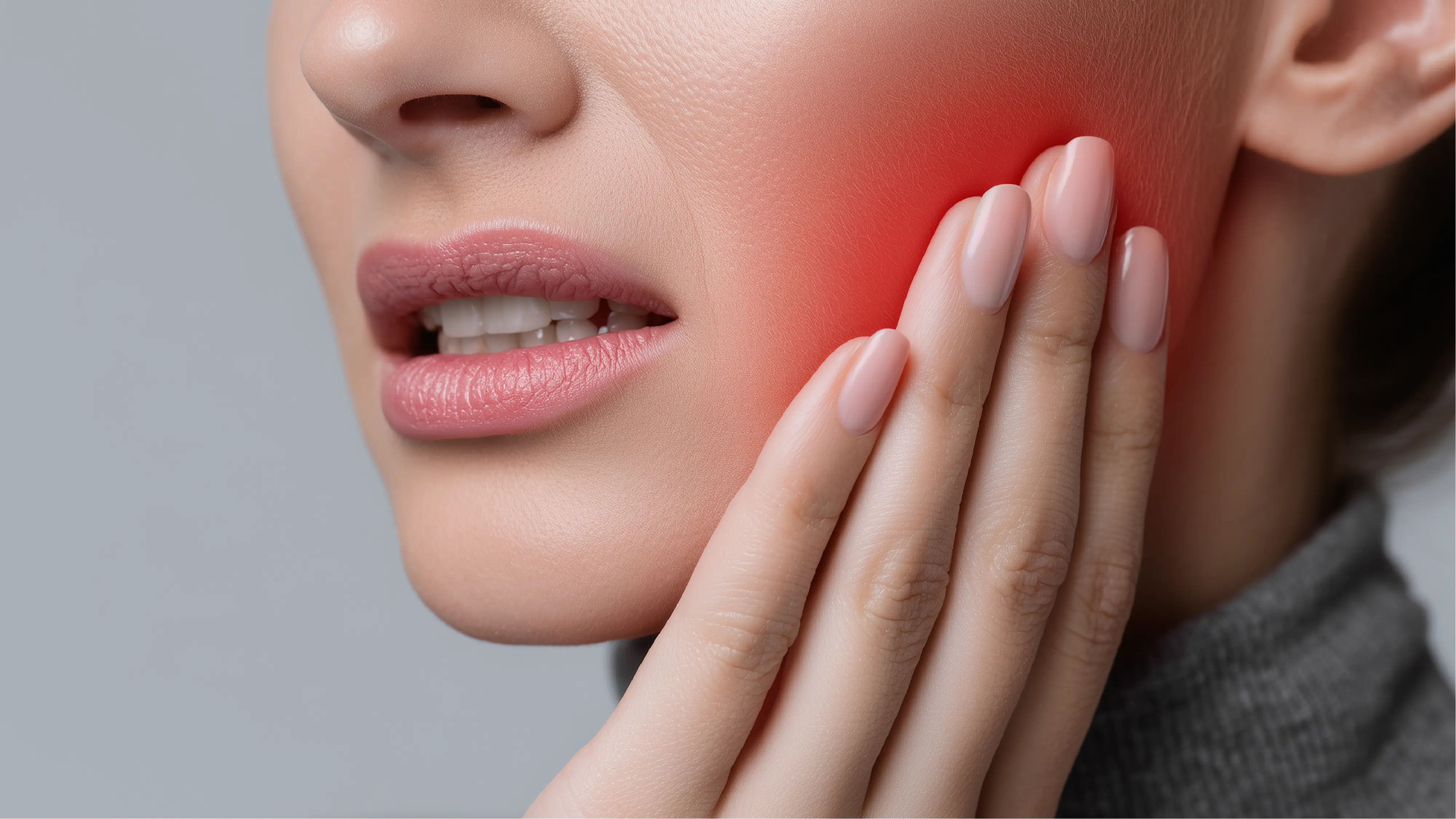Tooth loss is an uncomfortable issue that can lead to facial asymmetry, functional disorders, and other oral problems. Losing a tooth can cause noticeable changes in your self-esteem, make you hesitant to smile in public, and even lead to psychological trauma. So, what causes tooth loss, and how can it be prevented? If you're curious about the answers, you've come to the right place!
There are numerous reasons why teeth can be lost. Knowing these reasons raises awareness about oral health and helps you prevent the issues that lead to tooth loss. In this article, we've discussed the causes of tooth loss, ways to prevent further tooth loss, and how to regain a beautiful smile. Keep reading to discover answers to these questions and much more!
What causes tooth loss?
If your overall health is poor and you are unaware of it, various symptoms will manifest in your body, including your oral health. Tooth loss is one of the most noticeable symptoms.
Like any other illness, tooth loss has underlying causes. The most common reasons for tooth loss include:
- Poor Oral Hygiene: Brushing your teeth twice a day and regular flossing prevent bacteria from growing excessively in your mouth. Neglecting these simple routines can cause bacteria to thrive, leading to gum disease and tooth loss.
- Excessive Sugar Consumption: Eating sugary and starchy foods can cause plaque buildup on teeth. If you do not brush or rinse after consuming these foods, you may experience tooth loss.
- Gum Disease: Healthy gums are crucial for strong teeth. Untreated gum irritation or inflammation can lead to tooth loss.
- Accidents: Some tooth losses are caused by uncontrollable circumstances, such as accidents or trauma, resulting in multiple tooth losses.
- Illness: Conditions like cancer, thyroid issues, or diabetes can manifest symptoms in your mouth. If untreated or unaddressed promptly, they can increase the risk of oral diseases leading to tooth decay.
- Unhealthy Eating Habits: Poor food choices directly impact gum health, placing significant pressure on your teeth, leading to decay and eventual tooth loss.
Tooth loss indicates underlying issues. It's essential to identify factors affecting your teeth and take preventive measures early.
Why do gum problems lead to tooth loss?
Gum diseases signify poor oral hygiene. Harmful bacteria grow rapidly and release toxins that damage tooth enamel, causing decay. If untreated, this inflammation leads gums to recede, weakening bones and eventually causing tooth loss.
How to prevent tooth loss?
Tooth loss was once considered unavoidable. However, advancements in dentistry and increased public awareness have shown it's preventable.
If you haven't lost any teeth yet but fear losing them later in life, you should seriously consider learning preventive measures. The most effective method to prevent tooth loss is addressing common contributing issues.
Additionally, to prevent tooth loss:
- Dental Care: Follow oral hygiene guidelines to prevent tooth loss.
- Regular Dental Checkups: Regular dental visits provide professional cleaning, personalized advice, and information on maintaining oral health.
- Gum Care: Healthy gums are essential. Brushing alone isn't sufficient; ensure your gums are healthy.
- Avoid Sugary and Acidic Foods: Dietary habits significantly influence tooth decay. Avoid sugary and acidic foods to prevent tooth loss.
- Maintain General Health: Conditions like diabetes and osteoporosis directly correlate with increased tooth loss. Managing overall health reduces tooth loss risks.
Can lost teeth be replaced?
Dentists offer treatment options for lost teeth, including dental implants and bridges, helping restore your smile’s aesthetics and functionality.
Tooth loss treatment
Tooth loss is a serious issue. Missing teeth can cause various oral problems and affect your eating and speaking abilities. Modern dentistry, however, offers innovative solutions for detecting and treating tooth loss effectively.
Common treatments include:
- Dental Implants A state-of-the-art solution, implants involve placing titanium screws into the jawbone, supporting teeth, and ensuring long-term oral health. However, certain patients might not qualify, and alternative treatments would be considered.
- Dental Bridges If you lose a tooth between two healthy teeth, dentists may use bridge treatments.
- Dentures If implants or bridges aren't suitable, traditional dentures might be recommended, especially for patients with insufficient bone mass or high infection risks.
Visit your dentist promptly if you're missing teeth. Dentists will determine the most suitable treatment to restore your smile and improve your quality of life.
Other treatments for missing teeth
Tooth loss affects speech, facial structure, and eating habits. Dentists offer modern, highly successful treatments for tooth loss.
In some cases, standard treatments might not be viable. Strengthening tooth enamel with fluoride toothpaste can help establish a healthier oral structure.
What happens if tooth loss is left untreated?
The mouth is a complex structure. Missing a tooth disrupts the balanced distribution of force when eating and speaking, causing damage to bones, joints, and oral tissues over time.
Young individuals experiencing tooth loss often face psychological issues, including self-image concerns and decreased self-esteem.
You might not immediately notice oral damage. However, symptoms intensify over time, complicating treatment significantly.
Frequently Asked Questions about Tooth Loss
Why does early tooth loss occur?
Early tooth loss can result from plaque buildup, genetic factors, accidents, or trauma.
How are missing teeth replaced?
Various treatments exist, and your dentist will assess your oral condition to choose the best method.
I lost one tooth, what should I do?
You should contact our clinics immediately. Our dentists and experienced staff will assist you, most likely recommending a bridge treatment. However, exact methods are determined after an examination.
What happens if I don't replace a pulled tooth?
If you don't replace it, you may face chewing difficulties, speech problems, and loss of confidence.
Is tooth loss normal at a young age?
Tooth loss at a young age isn't normal and requires investigating the underlying cause and evaluating treatment options.


















































